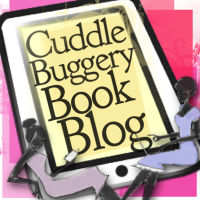Once again, I did not have something to post, and I don't wish to remain postless until the next review or meme comes along. This post was inspired by the drama that sprung up yesterday with several authors and several very unhappy reviewers. To sum it up: several authors e-mailed reviewers, complaining of three-star reviews. One publicly complained of these on Twitter, and was joined by several other authors, as well as agents. Goodreaders were understandably upset.
These authors seemed to be under the impression that a three-stars review is a "negative review." This puzzled me a bit, because if one scrolls their mouse over the three star rating on Goodreads, it says "I liked it."
But not all reviewers go along with Goodreads's definition. For some, it's simply a "this was okay." For some, it's more complicated than simply "I liked it." It's an "I enjoyed this, but it wasn't anything special." Or maybe it's an "I really enjoyed this, but not as much as books I've rated four stars." Or many, many more. All reviewers operate under their own definitions, and these can vary hugely from person to person.
However, in the end, a three star is still an okay review at its worst. It's not a glowing review, but it's certainly not a bad one.
But what if it was a bad rating, a bad review that these authors complained of? That raises two questions: one, do authors have the right to make public commentary on their bad reviews? And two, is it necessarily a negative thing?
I won't go into detail on the first, because that question has already been covered by various authors and reviewers through the Goodreads madness of January. The basic consensus seemed to be, if you want to avoid conflict, simply do not make any sort of public commentary. Most also agreed, however, that if the author is classy in their reply, it's acceptable behavior.
The second question, though, is one that's quite interesting to consider. I understand that a negative review hurts. I have received negative reviews of my own work--though, granted, none like those one will find on Goodreads--and I know that harsh reviews are never a pleasant experience (particularly when one is already published and cannot apply said harsh reviews to their manuscript). But the fact is? In the end, a negative review may help you just as much as, if not more than, a gushing review could.
It's been statistically proven that negative reviews increase book sales for new authors considerably more than the positive. That's right. Those negative reviews--even those ones that tear your soul into tiny pieces, stomp on them, and then scatter them to the wind--generate more publicity than a glowing review explaining every piece of awesomeness this book contains.
For the more well-known authors, positive reviews do trump negative reviews as far as book sales are concerned. But the fact is, in the end? A negative review will still get your book more attention than no review at all. If a person has hundreds, thousands of followers or subscribers or whatnot, that is hundreds or thousands of people being exposed to your book. Some of them will read the review, see some of the aspects that this reviewer disliked, and think, Hey. I like seeing that in a book. Maybe that means I'll like this book, too? Some of them will read the review and think, Whether I like this book or not, it's guaranteed to be entertaining in one way or another.
The bottom line is? Negative reviews get that book attention.
And to be honest? Negative reviews are the reason that book reviews can still be considered the basis for purchasing a book. If every review were four or five stars, who would value them? What would someone's endless gushing mean if every other review on every other book was exactly the same? Negative reviews make the good reviews stand out. They make us realize that, hey, if this person who's usually quite picky really, really loved that book, maybe I should pick it up.
Maybe if they really, really hated that book, I should pick it up, too.
This is an extraordinarily complicated topic, and I won't even try to pretend that I've covered anywhere near everything there is to say. I simply wanted to share my thoughts, and to hear yours. How do you define your rating system, and how do you judge the value of another's rating based on theirs? What do you think of negative reviews?
I'm interested in hearing your thoughts.
Friday, March 16, 2012
Subscribe to:
Post Comments (Atom)










4 comments:
Ah more drama. There's always something isn't there? ;)
I have had a couple of people (other readers) in the past ask me why I rated a book 3 stars when I made it clear in my review that I liked it. I'm pretty sure 3 stars on Goodreads means 'I liked it' so that is the most appropriate number to rate a book that I 'like', right? Books I 'really like' get 4s or higher - but the majority of the books I have rated on GR have been 3 star books. Which is perfectly fine to me! 3 stars isn't a bad rating at all.
Oh Goodreads... *sigh*
I have always thought of myself as a very picky reader. Books rarely receive the gold-star-seal-of-approval - but once they do, they (and the author) are unassailable. I've kept running track of my 'average' Goodreads rating over time - I didn't want it to get too high or change much. If I notice it changing, I go back through my recent reviews and try to decide if I gave any star-ratings that were higher than deserved. That may be borderline crazy, but it's my way of self-policing. I DO gush over books I loved, but I need to be healthy about the whole reading process and remember that there are plenty of things I am not overly impressed with, and DNFs, and that's okay.
I think as long as there is a reader-driven reviewing site like Goodreads in existence, authors are going to put their feet in their mouths. It's too personal, even if they try to separate themselves. And they should NEVER, EVER respond. Because nothing on the internet dies or disappears.
This is one of the reasons that I actually don't use star ratings on my reviews. I don't think it's necessary to rate books on a ratings system, because I find it really difficult to come up with something that makes sense -- it's hard to give quantitative information when you've got qualitative information, in other words.
If you want to know what's really working for or against you, you need to look at all of the information. If you think you're the world's gift to writing (or anything people review at all), then yeah, I guess just ignore what other people say. But that's putting you at such a huge disadvantage.
I'll note one thing that I don't like, however, and that's how there are a few people on Goodreads have to get their opinions in and noses buried in e v e r y little thing that happens. All of the big GR "drama" I've seen come out this year, there's one or two people who keep getting involved. It's not good for the GR community to keep encouraging this crap to happen, and I feel like them always getting involved does.
Great post Lexie! This is such a tricky topic.
I avoid all of this drama about the fights over bad reviews and all that on goodreads and twitter because I like to read what I want to read. A negative review won't keep me from reading a book that I want to read. I want to form my own opinion on that book. Sure I will sometimes take a review from a blogger whose opinion I trust and is similar to my own before reading a book but in the end thats my decision to pick up a book or not. I don't think a 3 star review is bad at all it just means it was good. I have actually been thinking of getting rid of my star rating system on my blog lately though. It just takes a lot for me to completely hate a book so I really don't have a bunch of negative reviews on my blog. I think the bottom line is honesty in all this though. Its important to keep your reviews honest and run your blog the way you want too. Not everyone will agree with your opinion on something but thats just the way it is.
Traci @ The Reading Geek
Post a Comment